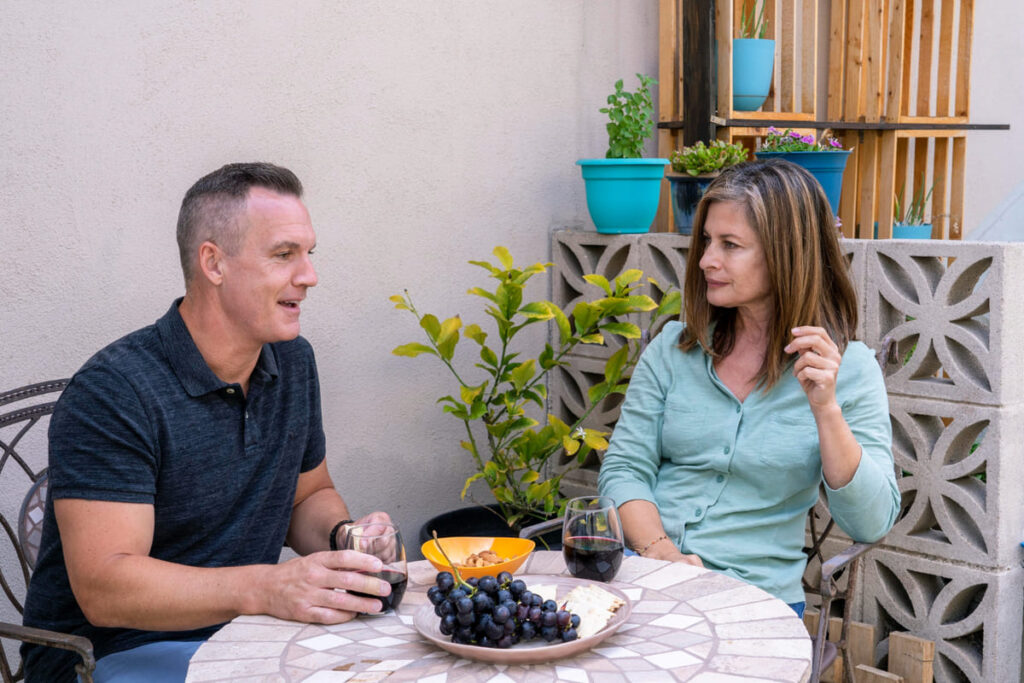15 Reasons Why Some Marriages Survive Tough Times While Others Don’t – Key Insights for Lasting Love
Marriage can be challenging, especially when couples face difficult moments together. Some marriages manage to weather storms, while others struggle to stay intact through the ups and downs.
Understanding why some marriages survive tough times while others don’t can help you strengthen your own relationship.
Open Communication and Active Listening

You need to talk openly with your partner about your feelings and concerns. When you share honestly, it builds trust and understanding.
Listening actively means really paying attention to what your partner says without interrupting. This shows respect and helps you both feel heard.
If you practice clear communication and listening, you create a safe space for resolving problems together. It makes tough times easier to handle.

When you and your partner share similar values, it creates a strong foundation. It helps you make decisions together with less conflict.
Having common goals gives your marriage a clear direction. You can support each other in reaching those goals, which builds teamwork.
If your priorities align, it’s easier to face challenges as a unit. Differences in core beliefs often create barriers that are hard to overcome.
Emotional Support During Crises

When you face hard times, having emotional support from your partner can make a big difference. It helps you feel understood and less alone.
You both need to listen without judgment and offer comfort. Small gestures like a kind word or a hug matter a lot.
If you can share your feelings openly, it builds trust. Being there for each other creates a stronger bond even in difficult moments.
Mutual Respect and Appreciation

You need to value your partner’s opinions, even when they differ from yours. Respect creates a safe space where both of you feel heard.
Showing appreciation for small actions can strengthen your connection. Simple thank-yous or kind words remind your partner that you notice their efforts.
When respect and appreciation are consistent, they build trust. This trust makes it easier to face challenges together without resentment.
Ability to Forgive and Move On

When you forgive your partner, you let go of hurt and resentment. This can clear the way for healing and growth in your relationship. Holding on to past mistakes often creates distance.
Moving on means focusing on the present and future instead of past troubles. It helps you build trust again and face challenges together. Forgiveness doesn’t mean forgetting but choosing to not let mistakes define your marriage.
Consistent Quality Time Together

You need to spend regular, meaningful time with your partner to strengthen your bond. This doesn’t mean just being in the same room but truly engaging with each other.
Quality time helps you understand each other’s feelings and needs. It creates a safe space where you both feel valued.
Even small routines, like a daily walk or a weekly dinner, can make a big difference. Consistency builds trust and connection over time.
Strong Conflict Resolution Skills

You need to be able to talk through problems calmly. When disagreements happen, handling them without yelling or blaming helps both of you feel heard.
It’s important to listen closely to your partner’s point of view. Finding solutions together, instead of insisting on winning, keeps your connection strong.
Using “we” language, like “let’s fix this,” makes challenges feel like a team effort. This approach helps your marriage stay steady during tough times.
Commitment to Growth as a Couple

You grow together when you make learning and adapting part of your relationship. It means being open to change, both as individuals and as a team.
You support each other’s goals and face challenges with a mindset of improvement. This helps you build a stronger connection.
When you commit to growing together, even tough times become opportunities. You learn more about each other and deepen your bond.
Financial Transparency and Planning

You and your partner need to be open about your finances. Sharing details about income, debts, and spending builds trust.
Planning your financial future together helps avoid surprises. Setting budgets and goals keeps you both aligned.
When money talk feels uncomfortable, try to approach it calmly. Honest conversations protect your relationship during tough times.
Maintaining Physical Intimacy

You need to prioritize physical closeness, even when life feels overwhelming. Touch, hugs, and simple gestures keep the connection alive.
Being open about your needs helps avoid misunderstandings. Physical intimacy is more than just sex; it’s also about comfort and reassurance.
If things feel distant, try small actions like holding hands or cuddling while watching a show. These moments build warmth and trust over time.
Supportive Social Networks

Having friends and family who support your relationship can make a big difference. They provide emotional comfort and practical advice when things get tough.
You’re more likely to feel understood and less isolated. This support helps you and your partner stay connected through challenges.
Building a circle that encourages healthy communication strengthens your marriage. It gives you both a sense of belonging outside the relationship.
Adaptability to Life Changes

You and your partner will face many changes over time. Being open to adjusting together helps you handle stress better.
If you stay flexible, you can find new ways to support each other. This keeps your connection strong even when life feels uncertain.
When challenges come, adapting your routines or expectations can prevent small problems from becoming bigger. It’s about growing with your partner, not against them.
Trust Built Over Time

You can’t rush trust in a marriage. It grows slowly as you both show up consistently for each other.
When you keep your promises, even the small ones, you build a foundation that feels safe.
Over time, your partner learns they can count on you, which helps during tough moments.
Trust means believing in your partner’s good intentions, even when things get hard.
You build it by being honest and showing patience as you both work through problems together.
Willingness to Seek Counseling

When you’re facing challenges, being open to counseling can make a big difference. It shows you’re willing to work together to understand each other better.
Counseling provides tools and guidance to navigate tough conversations. You learn how to communicate without blame and find solutions more calmly.
If you’re hesitant, remember that asking for help doesn’t mean failure. It means you value your relationship enough to try everything you can.
Balancing Independence and Togetherness

You need to find a balance between spending time together and having your own space. Maintaining your individual interests helps you grow and feel fulfilled.
At the same time, sharing experiences and making decisions together strengthens your connection. You don’t have to do everything as a pair, but showing support for each other matters.
Respecting each other’s independence while prioritizing your relationship builds trust. Both are important for weathering tough moments.







